
When I commit to something, I go all in. I didn’t just become a vegetarian, I became a vegan. I didn’t just cut back on alcohol when it became too much, I got sober for keeps. When I became a runner, I signed up for a half marathon, the most difficult one in the world. When I started dating a woman, I became a lesbian.
The year I came out, much to the dismay of my girlfriend who loved my long girly blond hair, I went full lesbian with a faux hawk and shaved steps. I loooooved it.
Of course, I didn’t just “become a lesbian.” I knew that I was bisexual since probably the age of six or seven when I started kissing my girlfriends on sleepovers. We would play house, and one of us would have to pretend to be the husband and the other the wife. This was the only acceptable premise of course for them, but I was kissing girls, so I didn’t care what story they were telling themselves. Sure, yes, this time you can be the girl, sweetheart.
When I had casual relationships with girls in college, I never seriously considered ever coming out because I never seriously considered it to be an option. Girl stuff was for fun, but not very serious. Since I liked boys too, I assumed that eventually there would be a serious boy-girl scenario in my future. I never imagined it any other way.
When I met my girlfriend at 24, and it became serious, I confronted my sexuality in a real way for the first time. I had never felt guilt, shame, or fear about my sexuality at any point in my life until I needed to confront it in a social and public way.
I had never once considered what it would be like to walk down the street holding a girl’s hand, or coming out to grand-parents or raising a child in a same-sex relationship. This is the lovely state most heteros get to inhabit for their entire existences, god bless them. I know it was bliss when I was there. (I can only imagine that this is something even remotely close to the blissful ignorance I enjoy as a white, first-world, employed, able-bodied cis gendered person.)
There were many sleepless nights as I came face to face with the reality of the heternormativity of my world and with the homophobia I had only ever scarcely considered a reality of my family and community. I had benefited my whole life from cis and straight privilege and never considered a time when I wouldn’t either benefit from both, or what it was like for people who didn’t.
The process maybe took about two years; I never in that time even considered the option of coming out as bisexual, though. I was in a committed relationship with a woman, we thought we were deeply in love and I thought it was forever. We talked about forever, and babies, and growing old together.
To me, in that place, there was no point in not going all in. What was the point in telling people I was also attracted to men if I had only the intention of living in a lesbian relationship for the rest of my life? I didn’t feel that it was fair to benefit from even the privileged status bisexuals maintain (objects of male desire, and perceived as existing for and within the hetero dynamic) and/or from presumed straightness. I went all in.
I got a “lesbian haircut.” I joined activist and political organizations that were fighting homophobia and transphobia. I marched in pride parades and dyke marches and became a spokesperson in public schools where I told my coming out story to kids. I started a gay blog, and I talked about LGBT issues on national television.
I did it all as a lesbian, because once I confronted the reality of heternormativity and my cis/gender privilege and straight privilege (as someone who walks around in the world often perceived as cisgendered and straight and benefits from it greatly), I felt like lesbianism was a social and political issue that mattered.
I believed that for the rest of my life, I would have to come out over and over again at new jobs, to new friends, to teachers, to my kid’s friends’ parents, to new neighbours and to authorities.
Living in a lesbian relationship meant that I would be treated like a lesbian for the rest of my life and it mattered that I not live in fear of prejudice and that I use my other class, race and gender privilege to join this battle.
Ironically or tragically, my relationship suffered from the pain of both real and internalized homophobia. For eight years, I almost never enjoyed even simple public affection like hand holding, a light touch or gesture from someone I loved when the moment might have called for it. We never had a romantic slow dance at a wedding or a romantic kiss on a beach at sunset. Things that give me butterflies, that make me blush, that make me feel blissfully desired and loved. It was a behind-closed-doors relationship and it suffered because of it.
When my relationship did end (I am sure you saw that coming!), I once again found myself in a strangely precarious situation: I wasn’t personally confused about my sexuality, but I have been feeling deep social uneasiness.
See Gay Pride Parades from Around the World
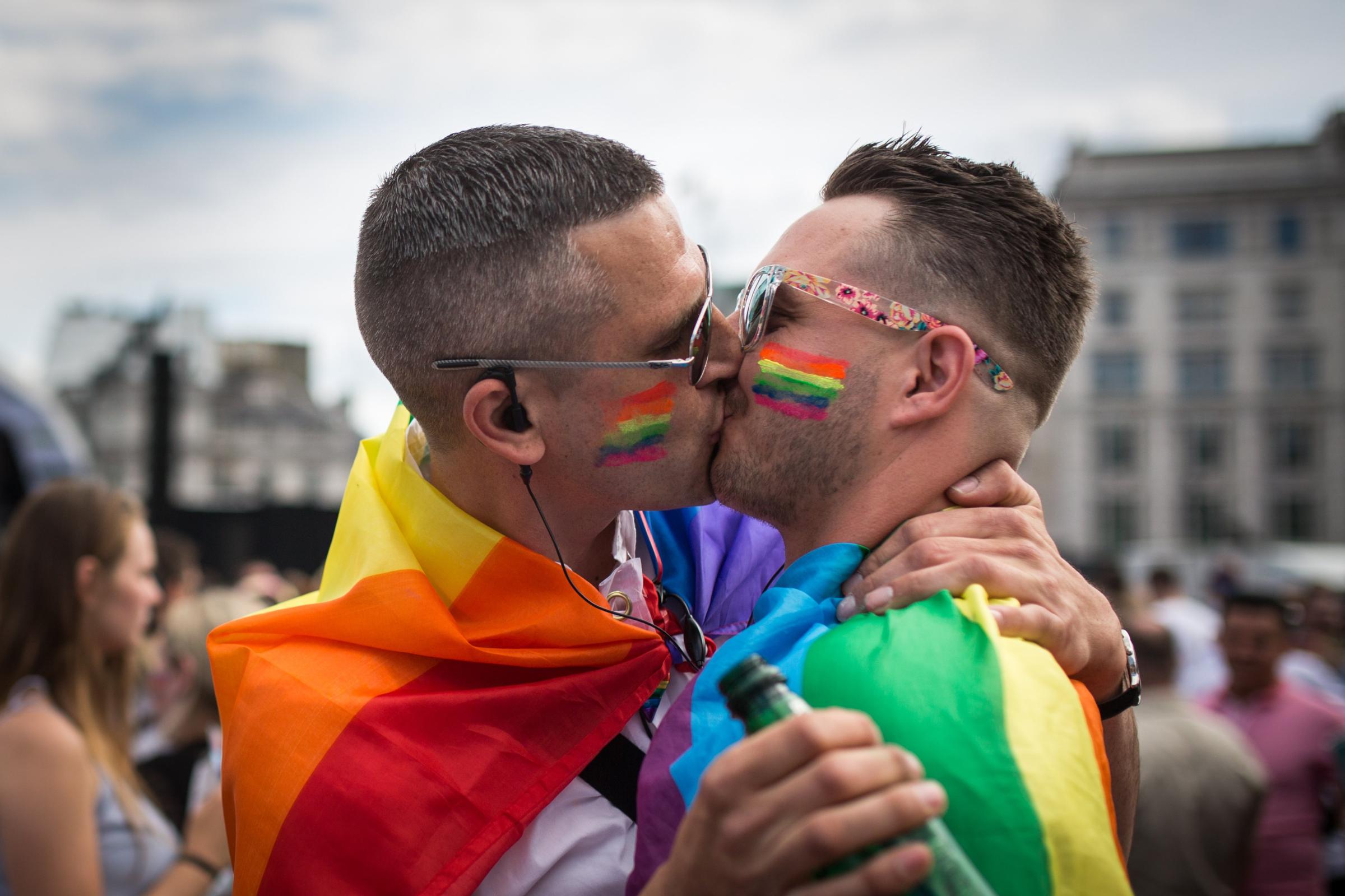
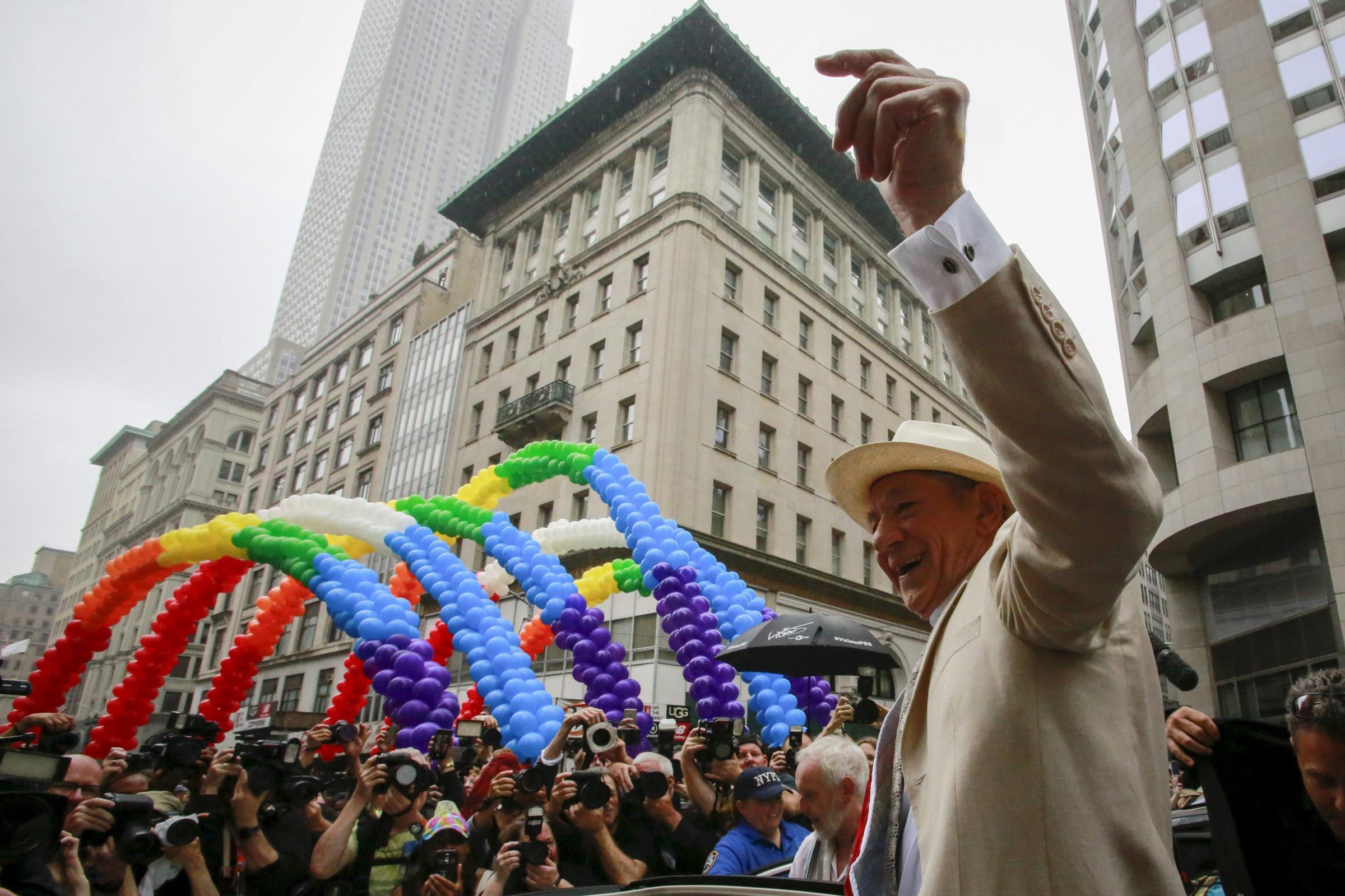
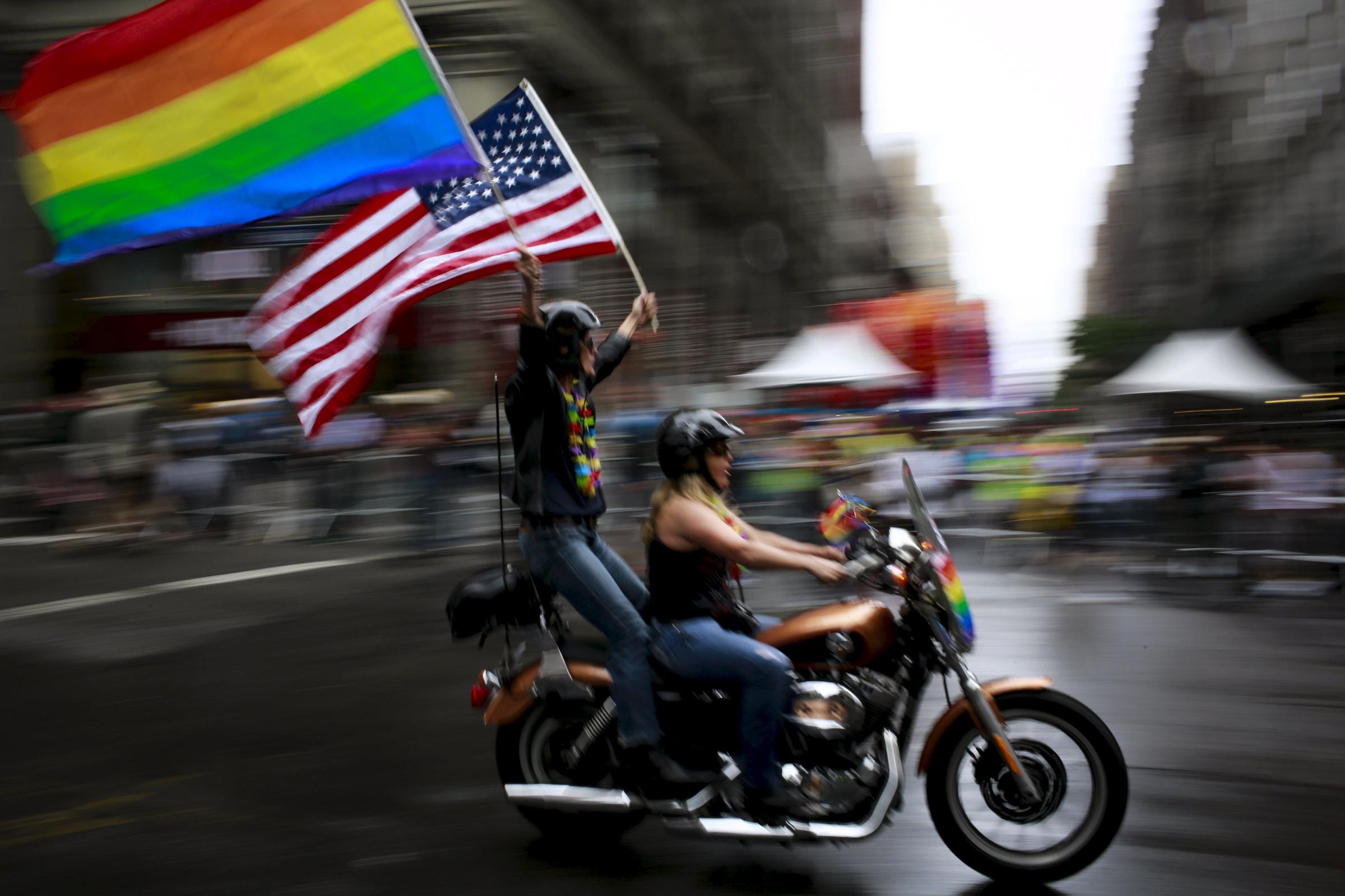
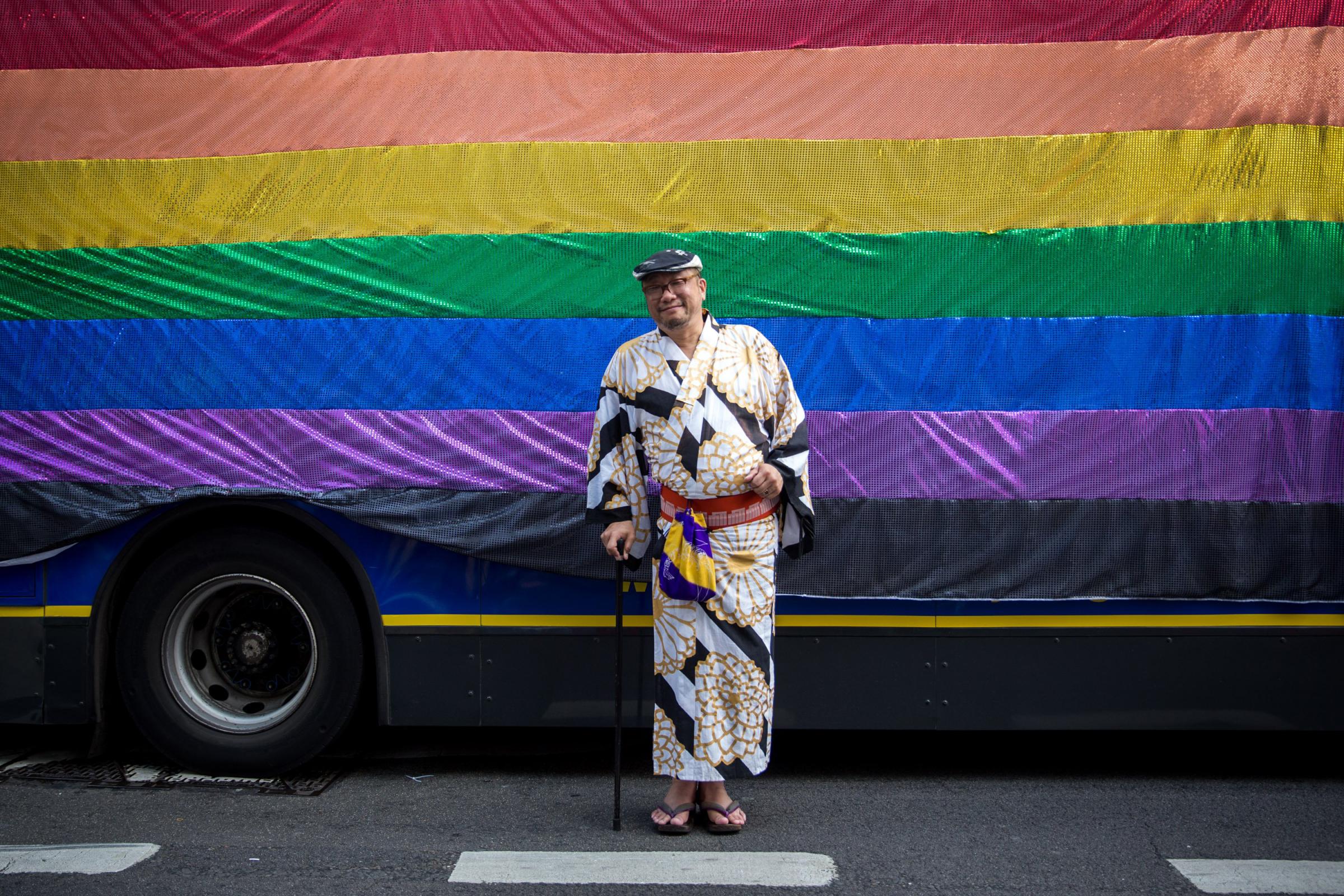
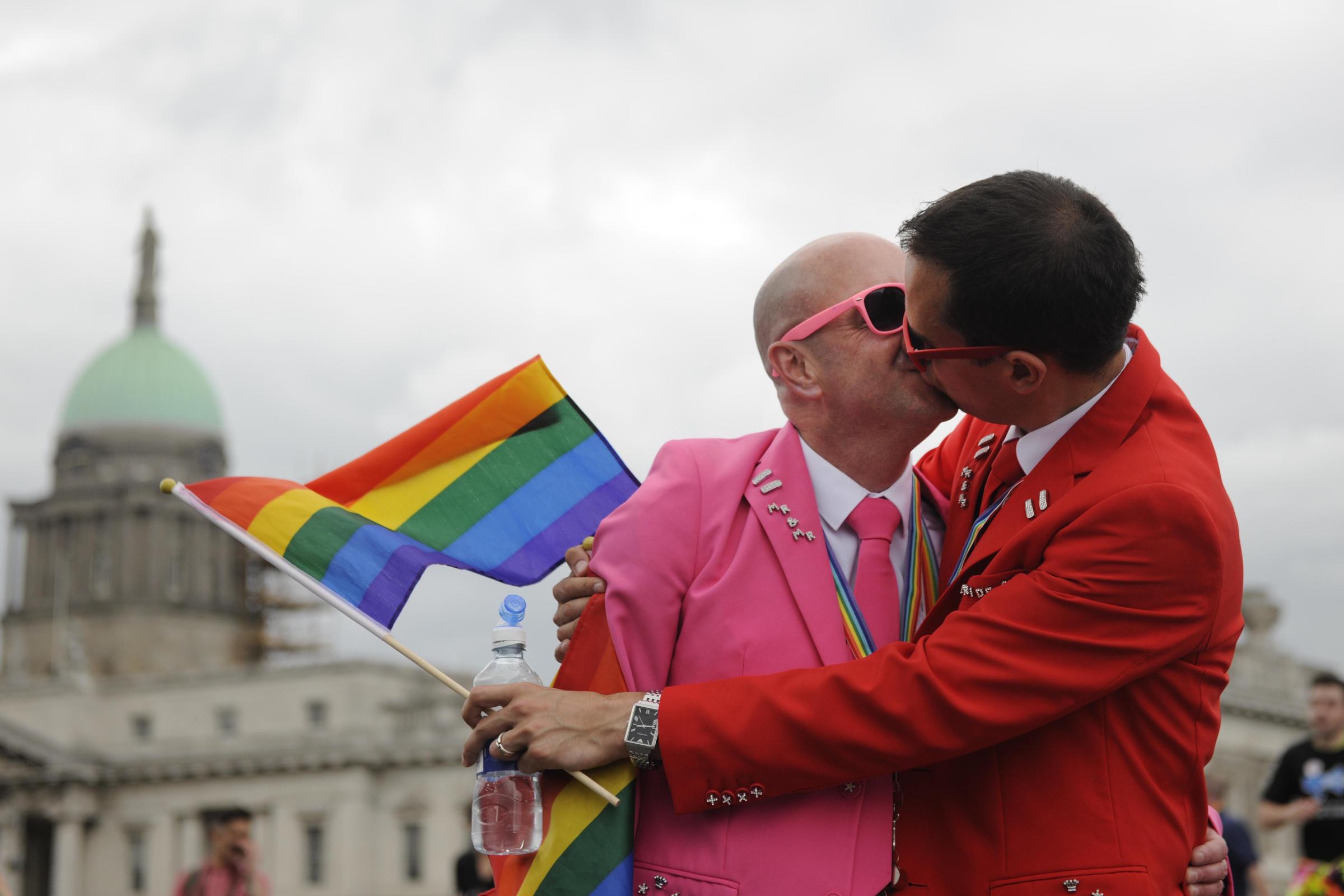
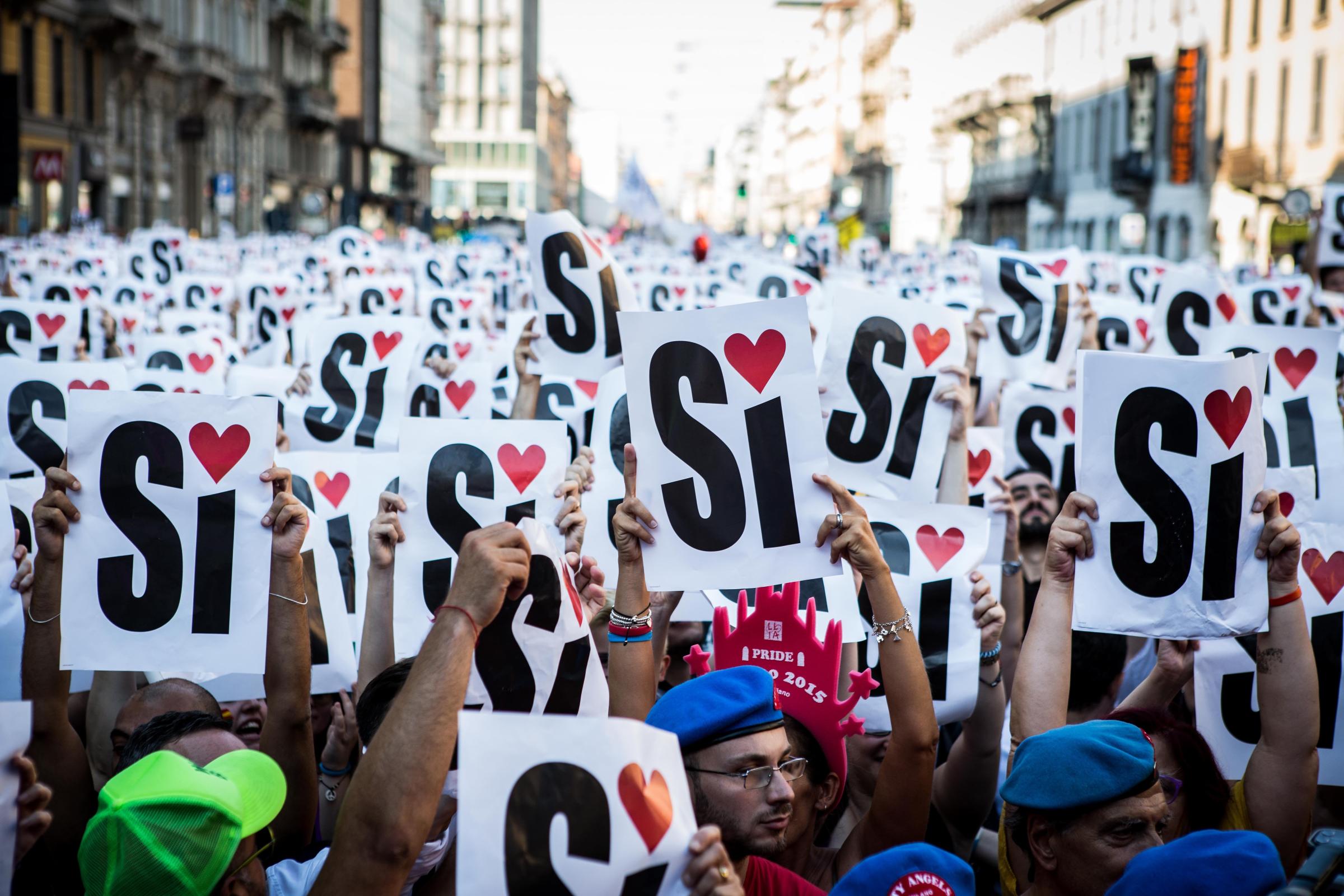
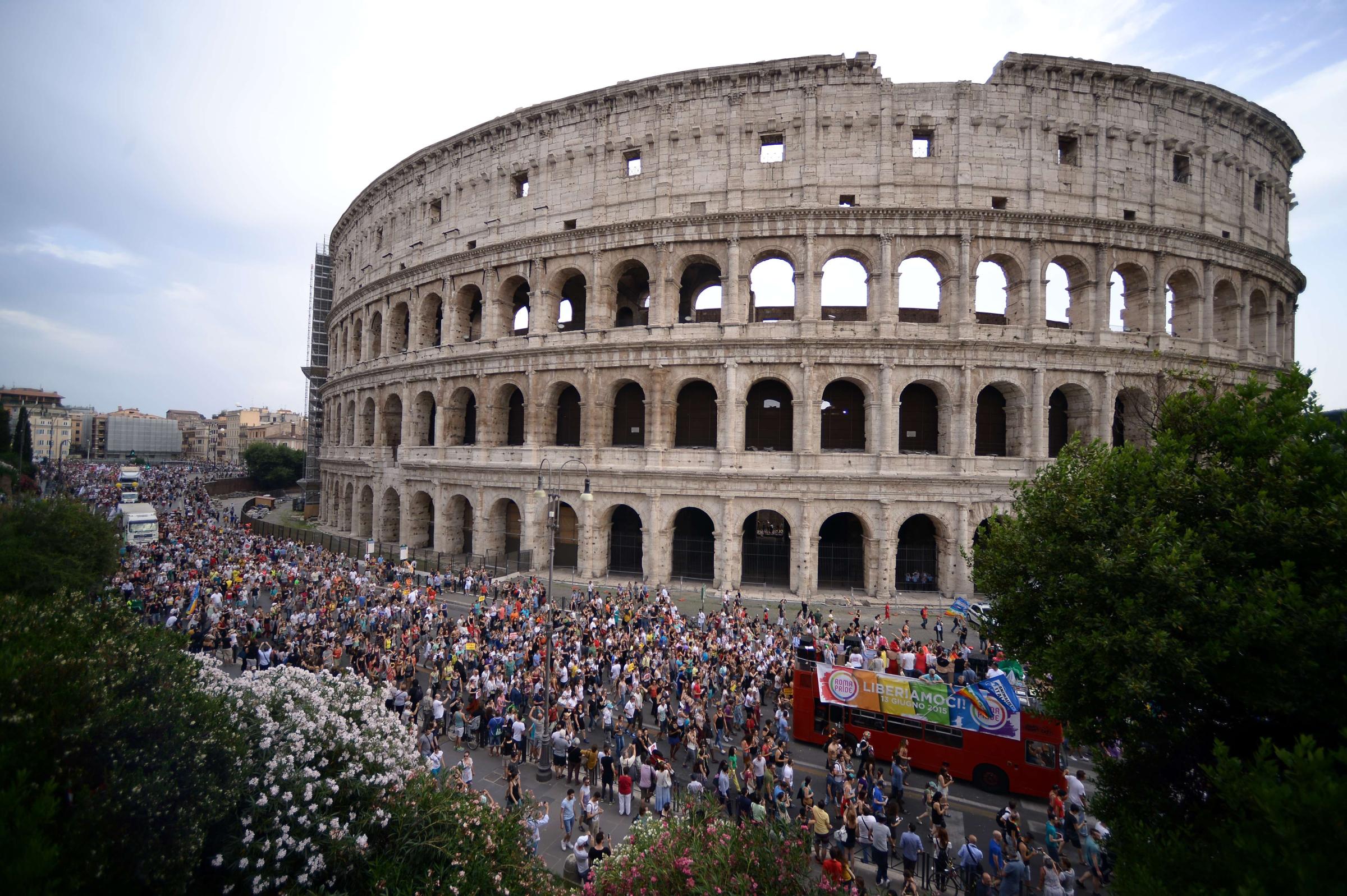
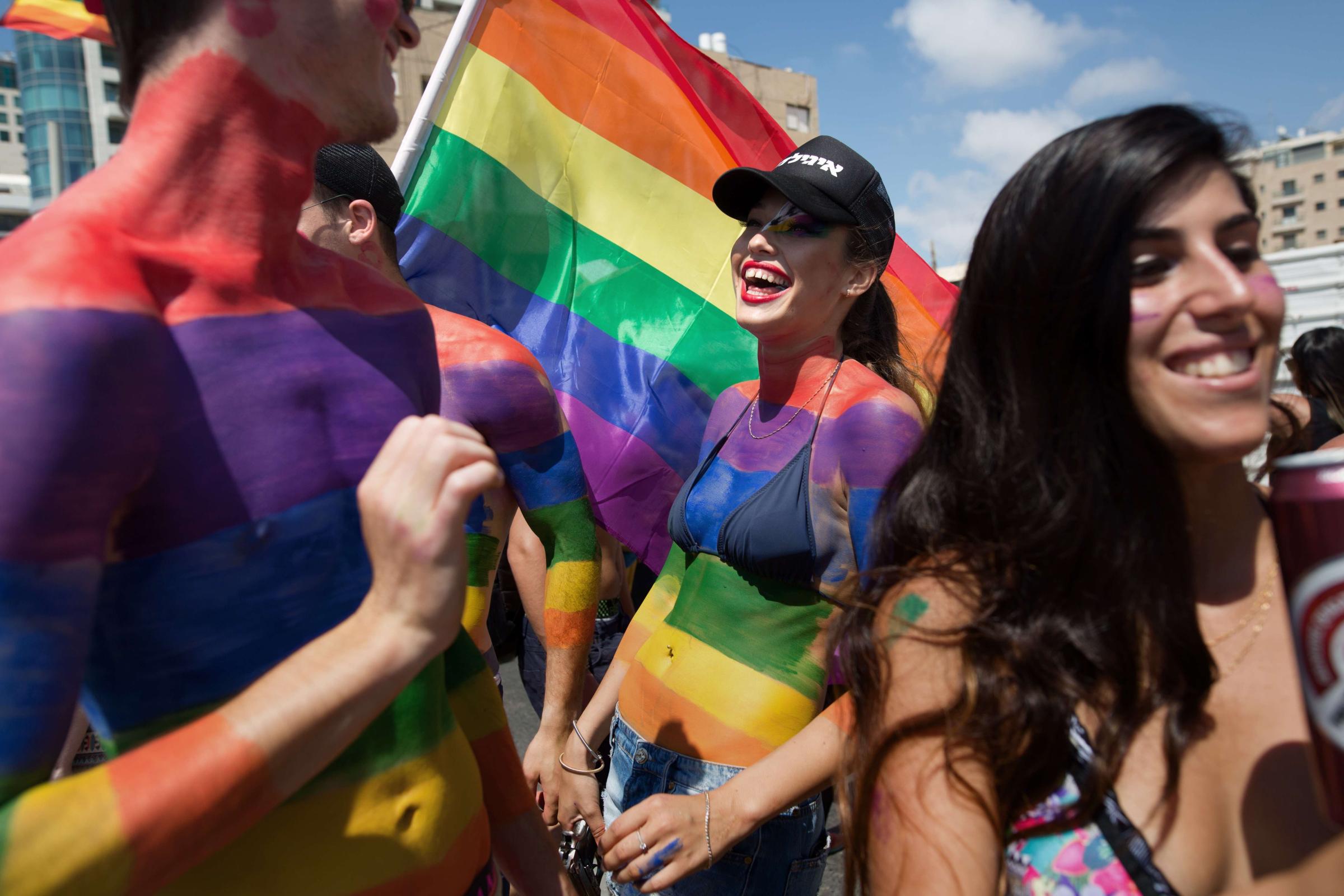
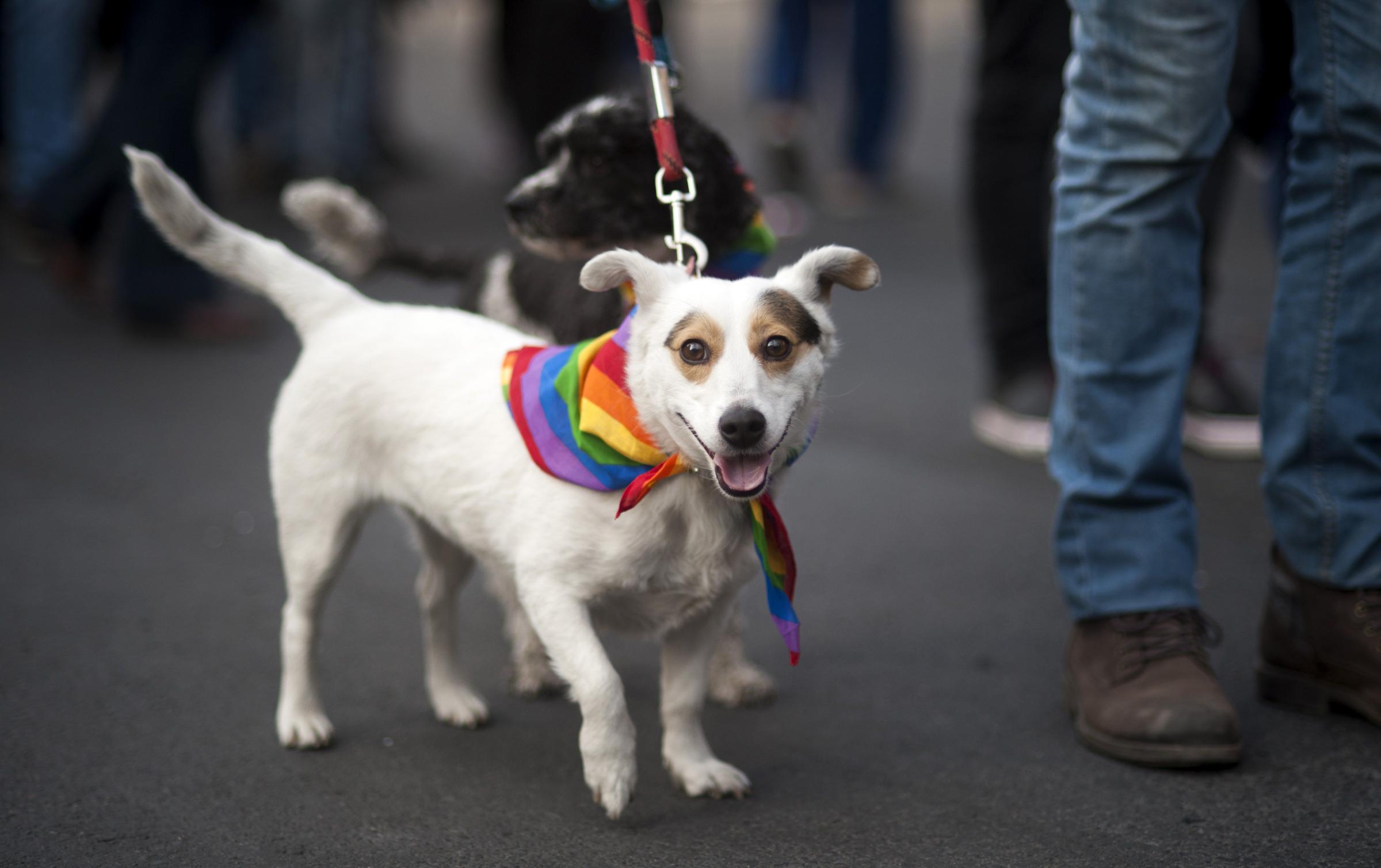
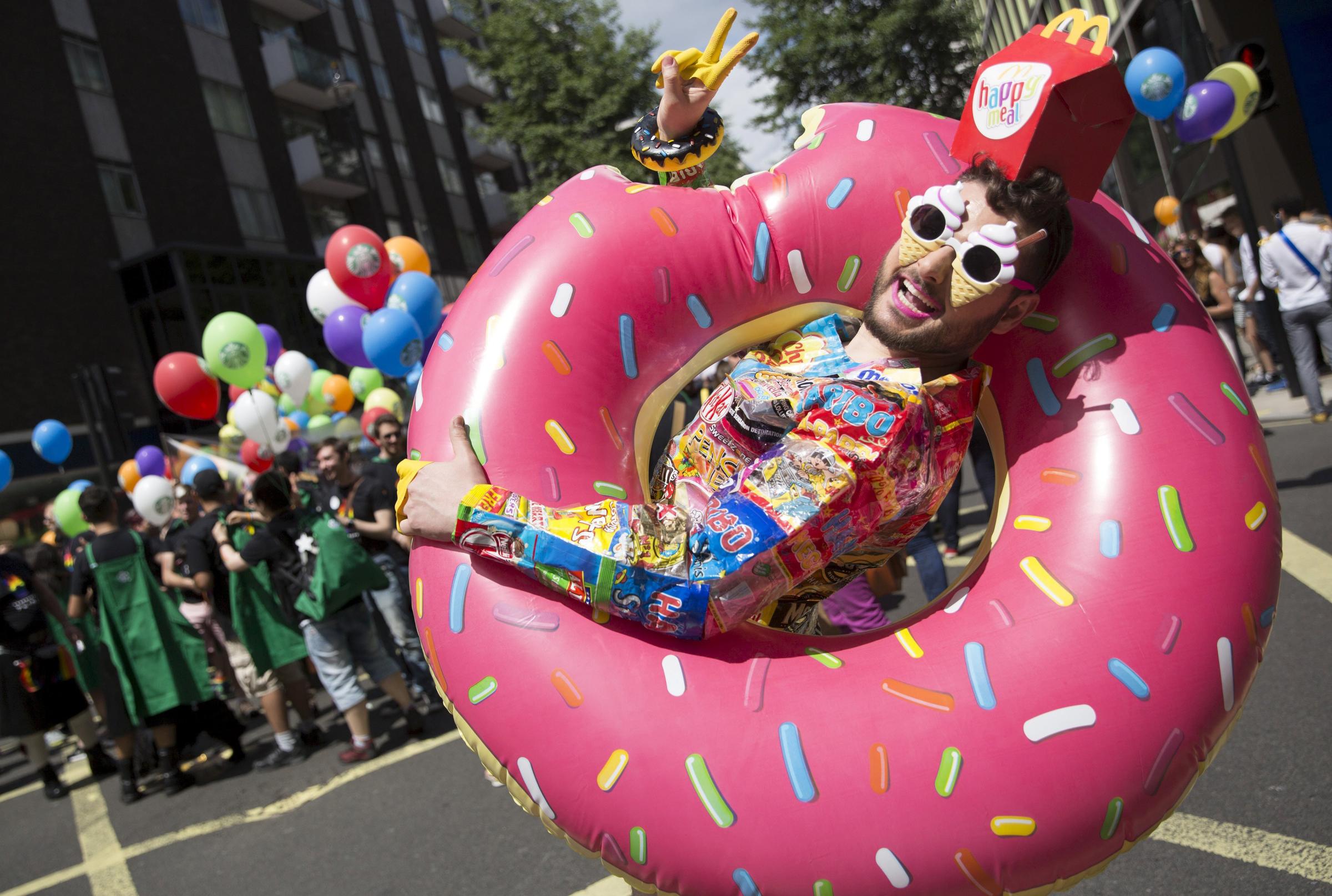
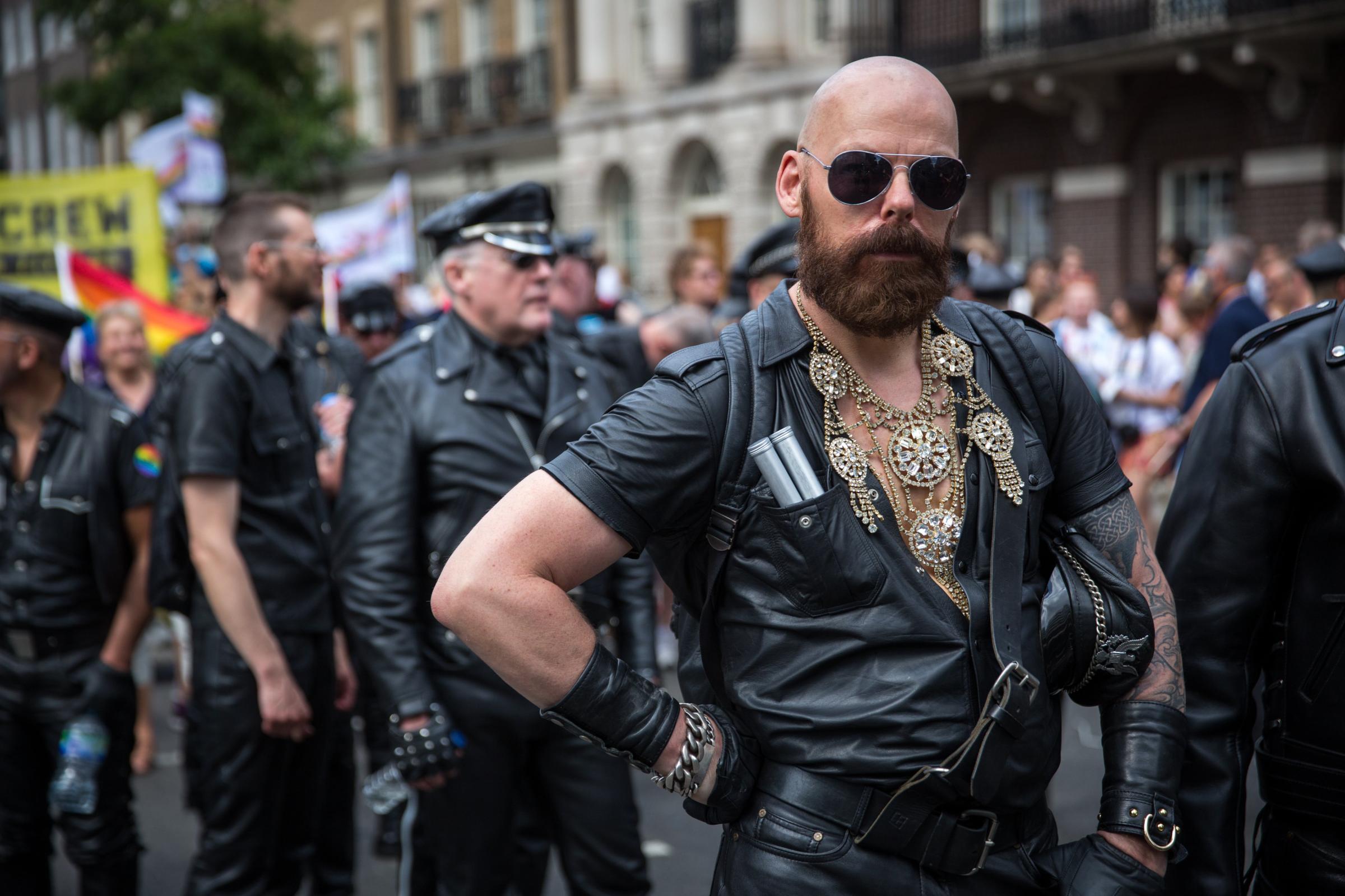
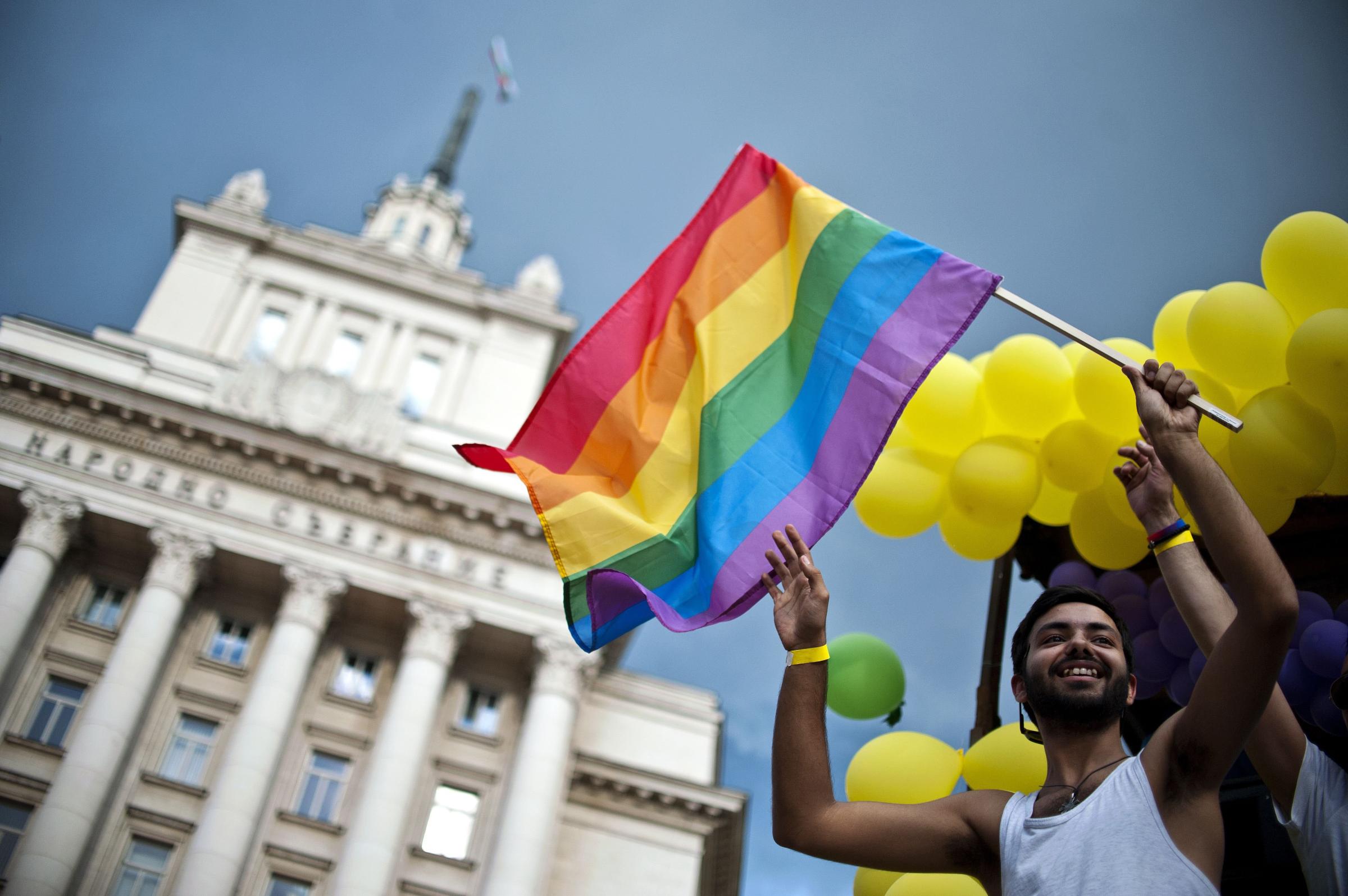
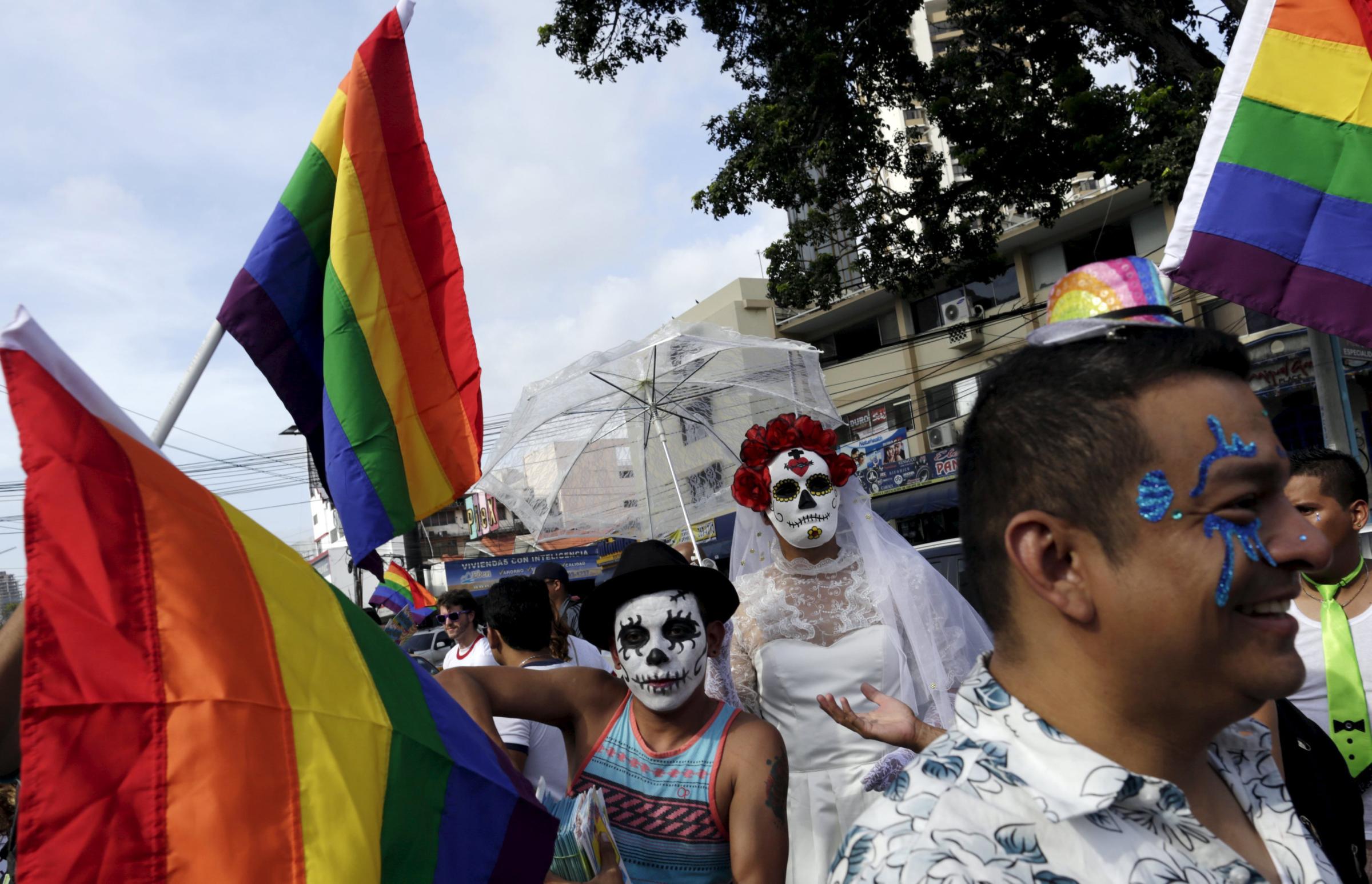
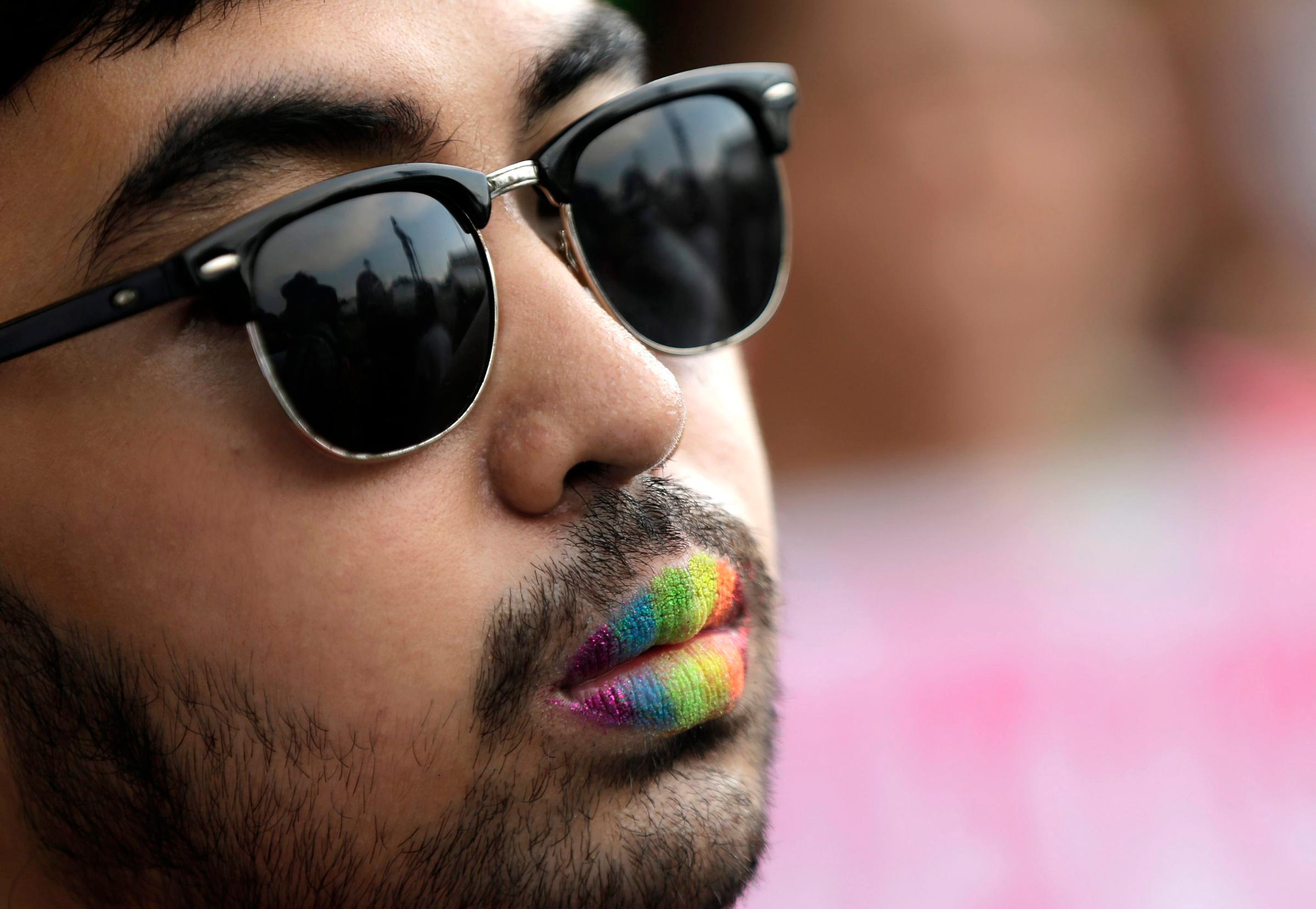
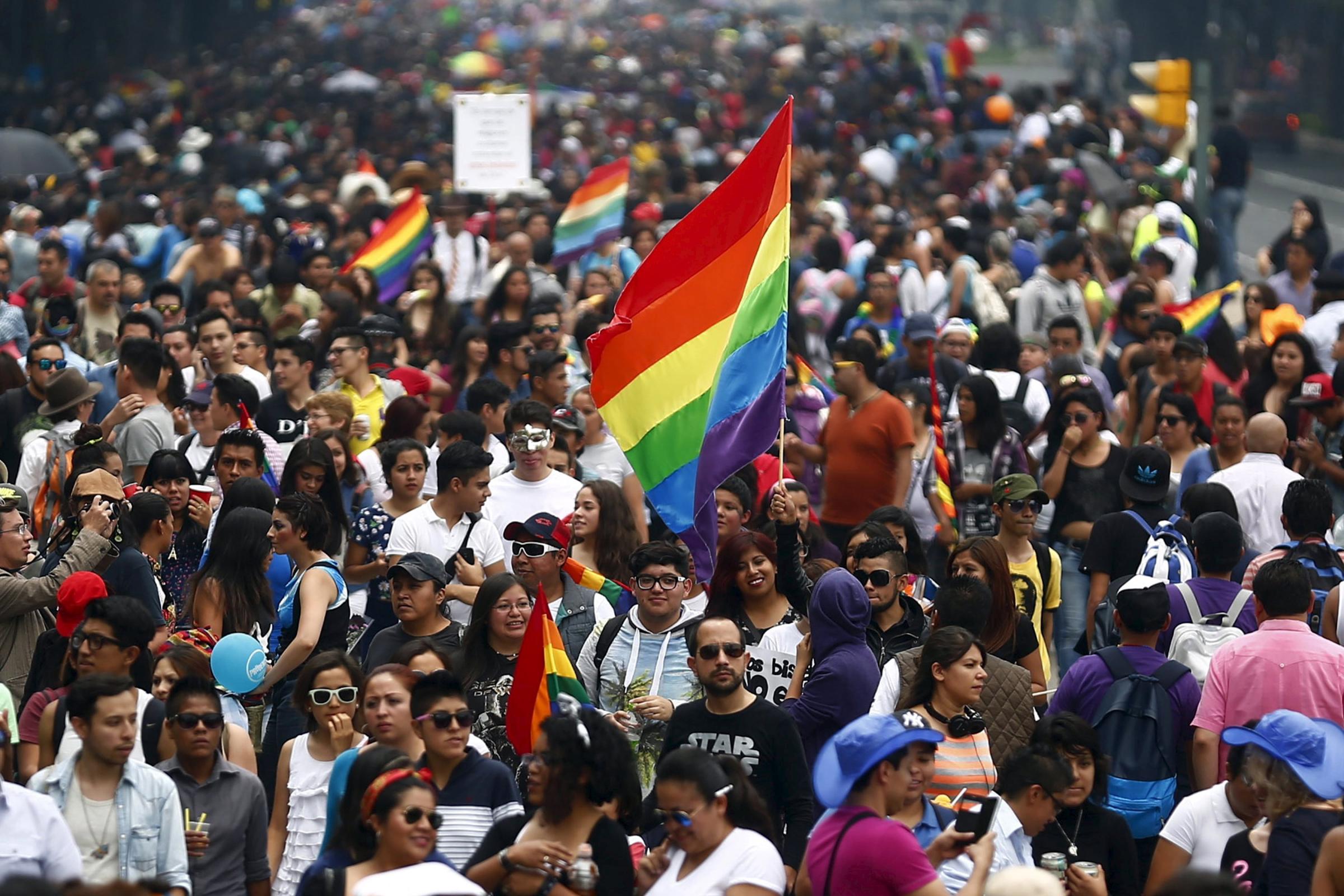
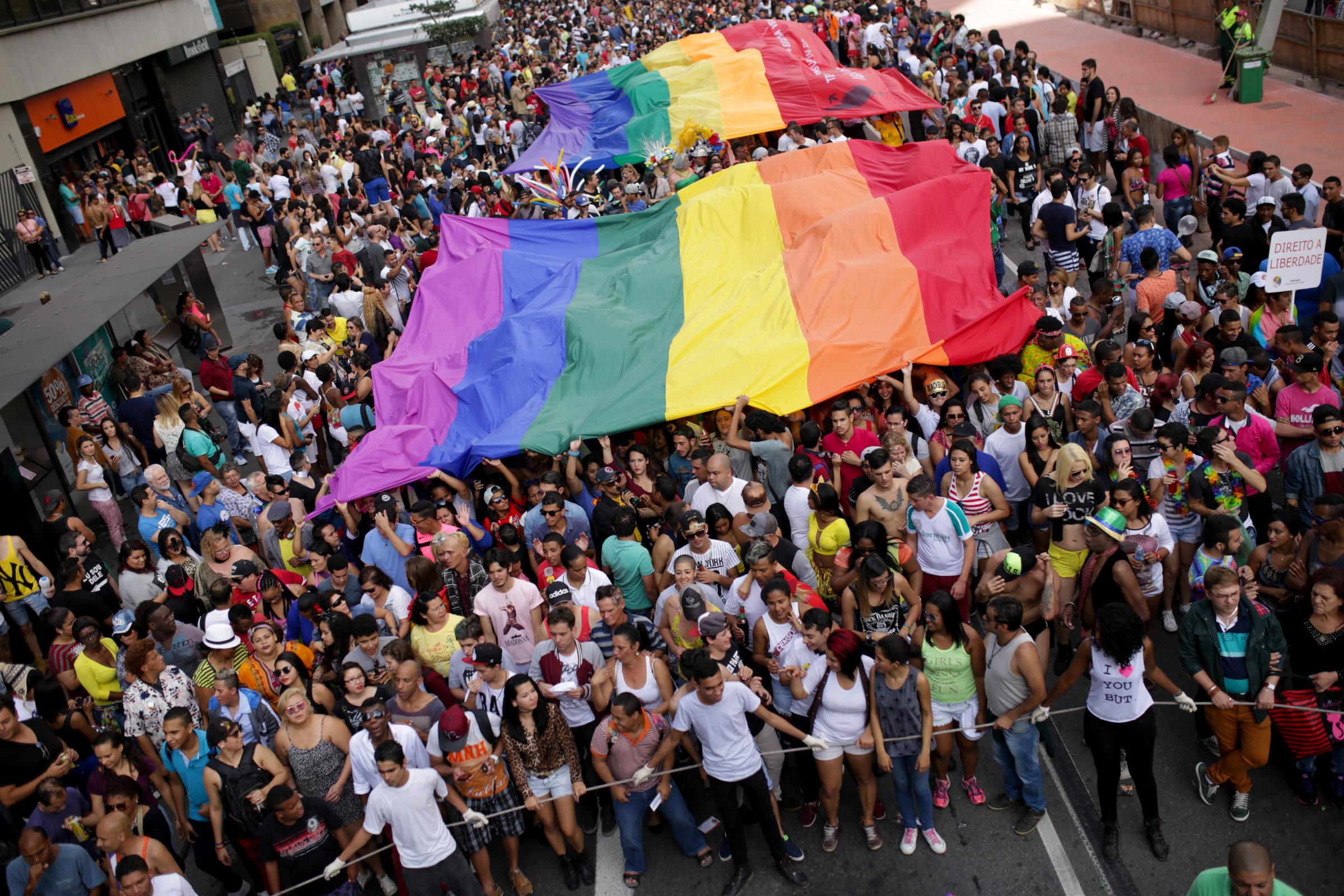
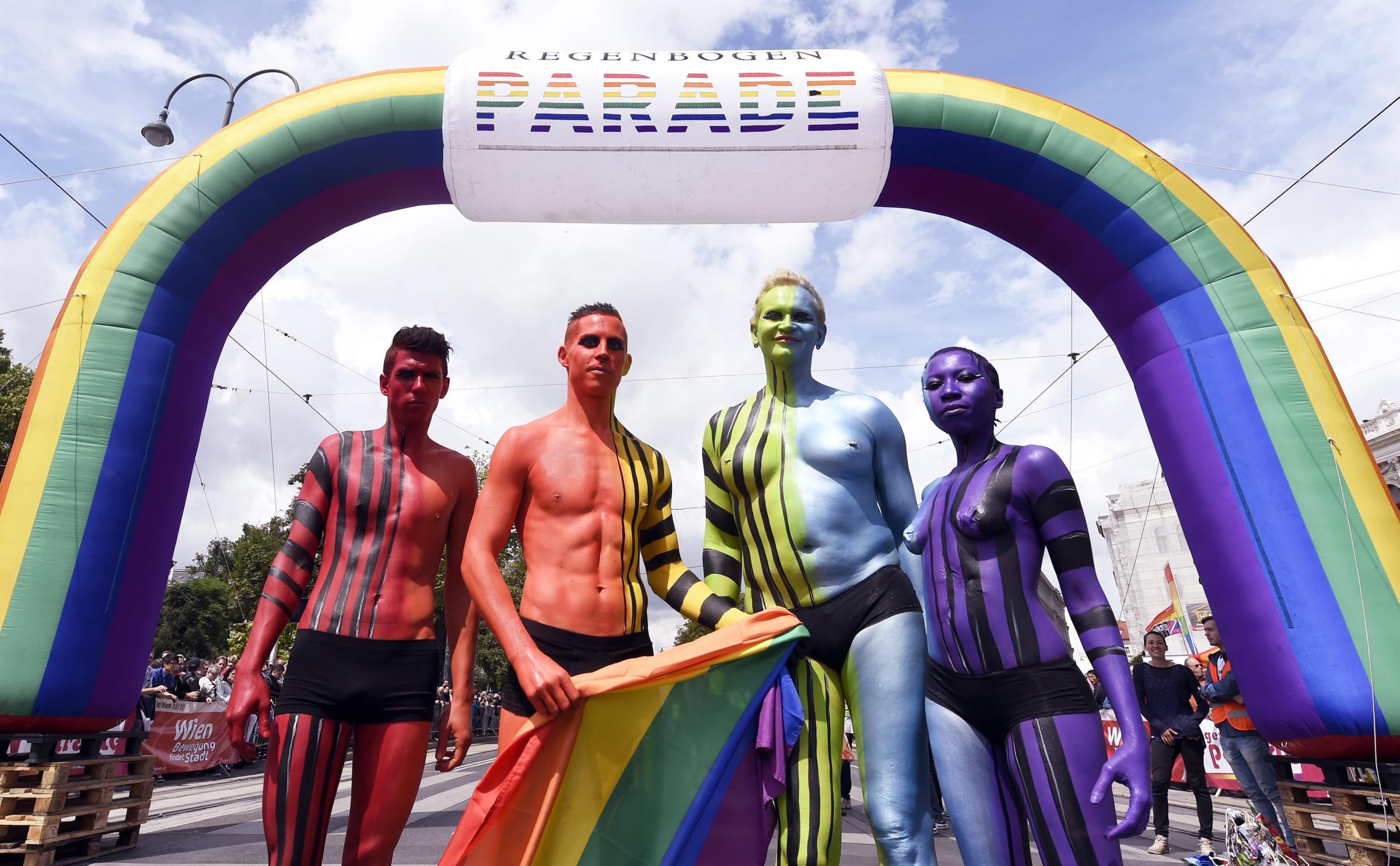
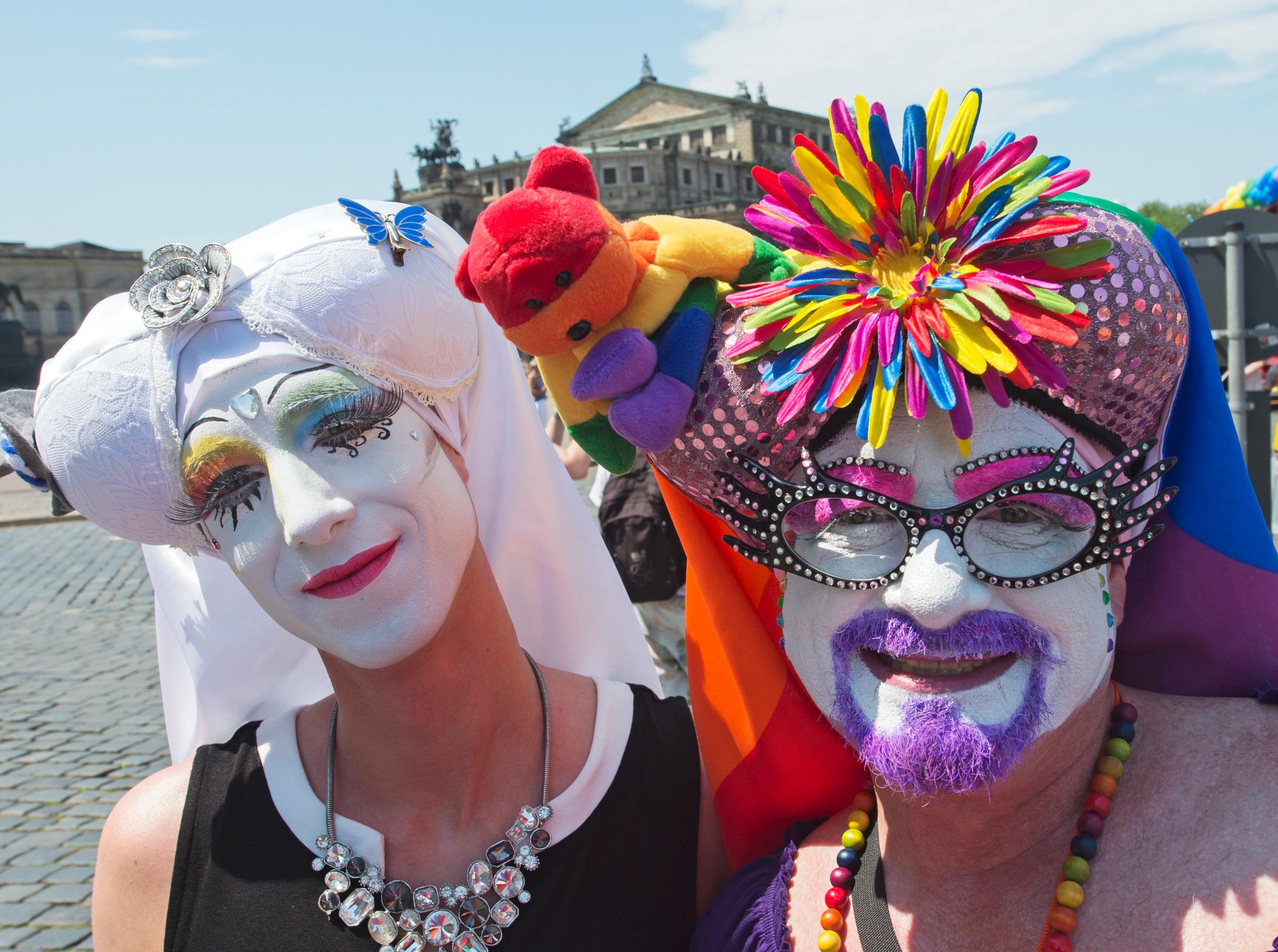
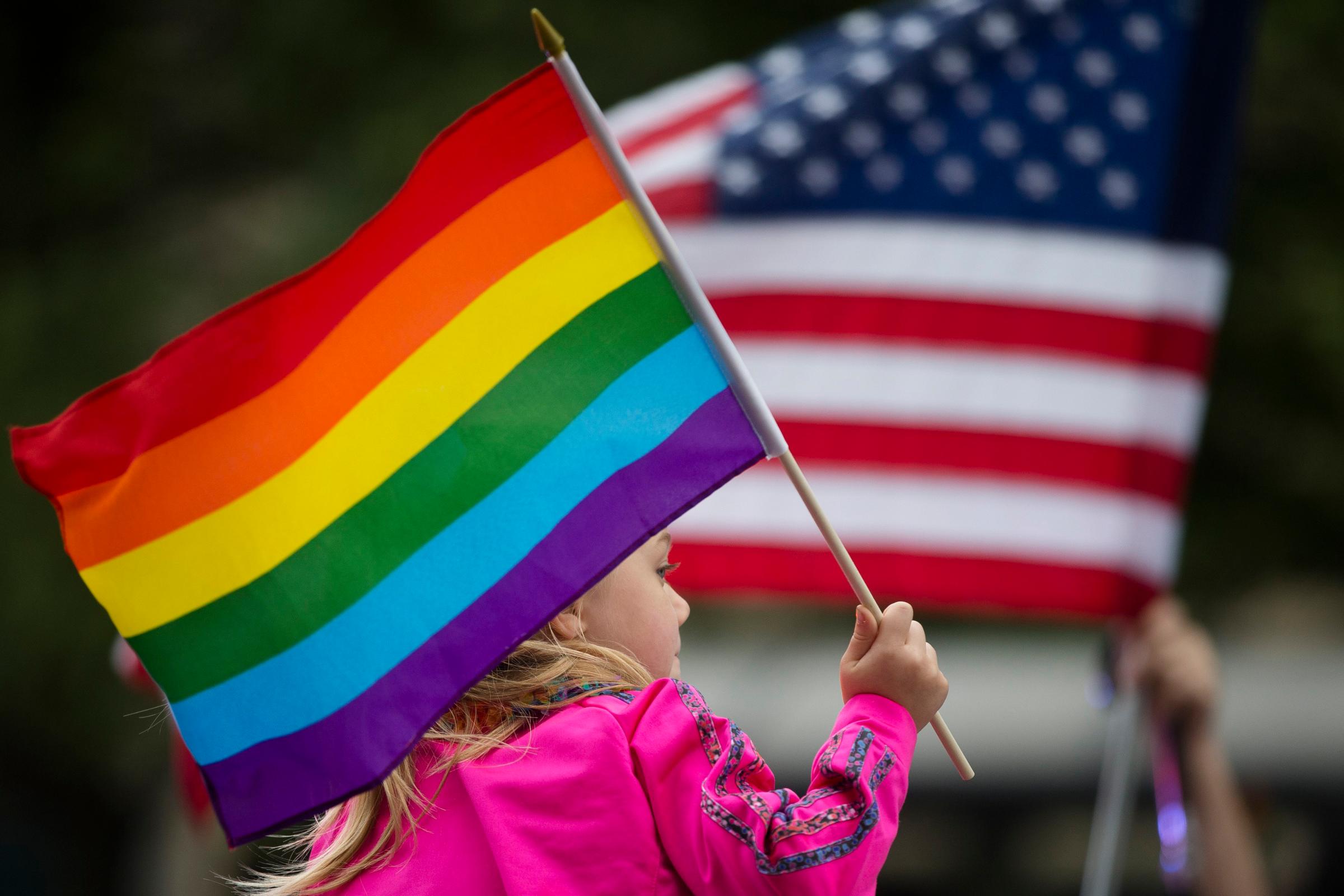
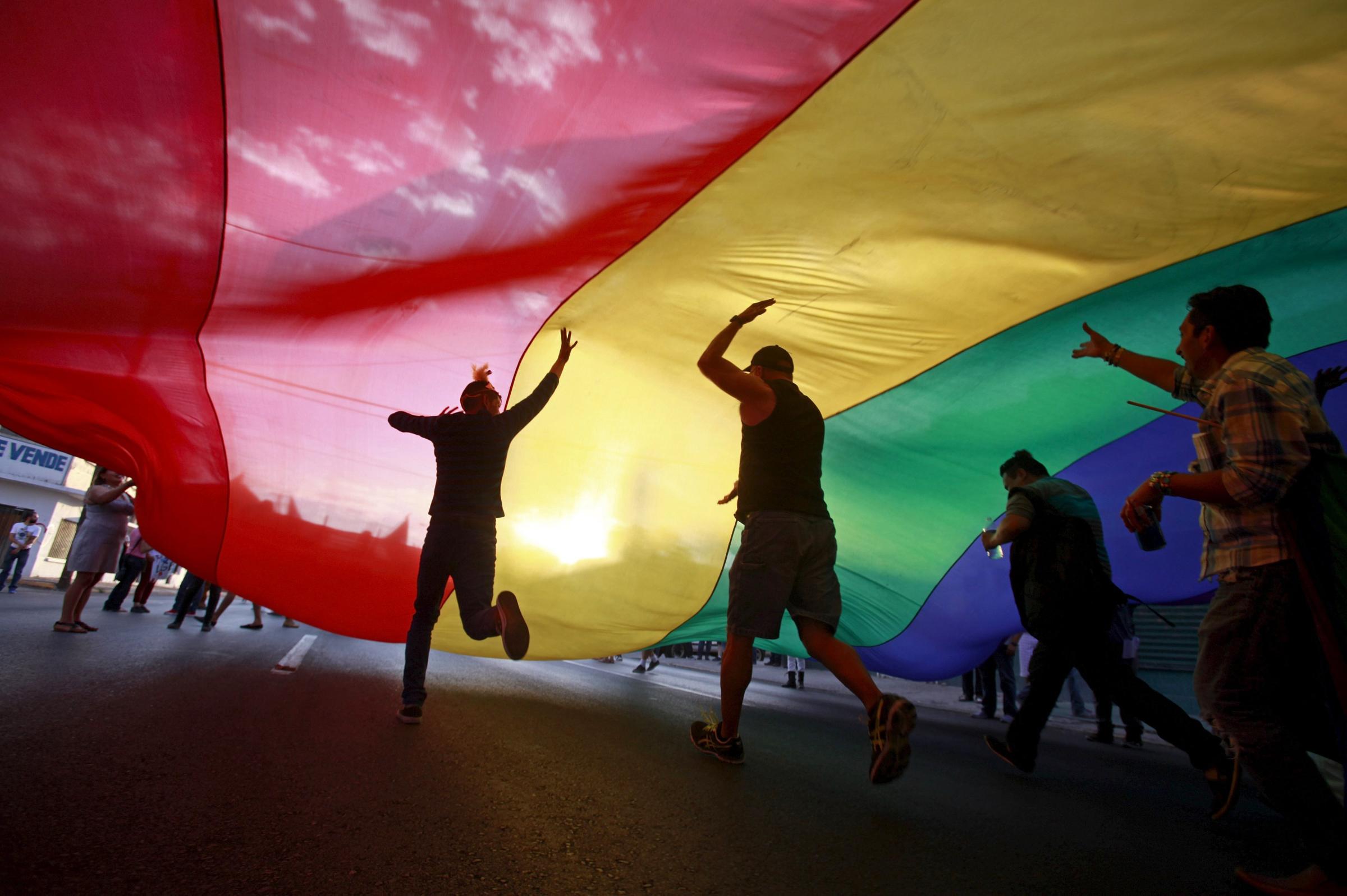
If I date a man, do I need to come out again? What will the gay community think? Will I lose all of my gay friends? Will I lose my identity? Do I want to lose that identity? What does it mean for “the cause”? How do I explain it to people? It was all about the social and not at all about the personal.
When I recently met a wildly lovely man who has made my heart burst out of my chest with passion and vulnerability and kindness and sincerity and intelligence, I resisted. How did this fit with my identity? Reverse coming out felt anxiety-inducing.
I didn’t prepare myself for was the guilt. The first time we walked hand in hand around my neighborhood, my heart was racing. When we kissed on a busy public street, I felt the heat rise up into my face. When we cuddled in the park, I felt eyes burning into me from all directions.
People were looking, but I was terribly aware that I was not a freakshow. I wasn’t been ogled. I didn’t need to be afraid of someone yelling at me, of someone being offended or someone offending me, or of violence and threats or being objectified by men. Little old ladies smiled at us as we walked by. Straight couples did little knowing straight couple exchanges.
I felt for the first time in a very long time that I could be present and be in the moment and be light-hearted and enjoy the newness of the romance, of the exchange of a smile, or the feeling of my hand in his. For the first time in a long time, the palms of my hands weren’t sweaty from anxiety and fear while holding hands in public. It was a relief.
In that relief, in that ease however, I felt overshadowed by guilt.
I am not sure how to shake it off yet. I don’t know how to not feel like I am abandoning my people and my cause, how to continue to fight the fight that is still being fought around the world and in my community for the right to walk down the street and not feel fear of retaliation, of disgust and of hatred.
For now, I am just trying to follow my heart and to listen deeply to my mind and body. And be true to myself.
Erika Jahn wrote this article for xoJane
More Must-Reads from TIME
- Donald Trump Is TIME's 2024 Person of the Year
- Why We Chose Trump as Person of the Year
- Is Intermittent Fasting Good or Bad for You?
- The 100 Must-Read Books of 2024
- The 20 Best Christmas TV Episodes
- Column: If Optimism Feels Ridiculous Now, Try Hope
- The Future of Climate Action Is Trade Policy
- Merle Bombardieri Is Helping People Make the Baby Decision
Contact us at letters@time.com